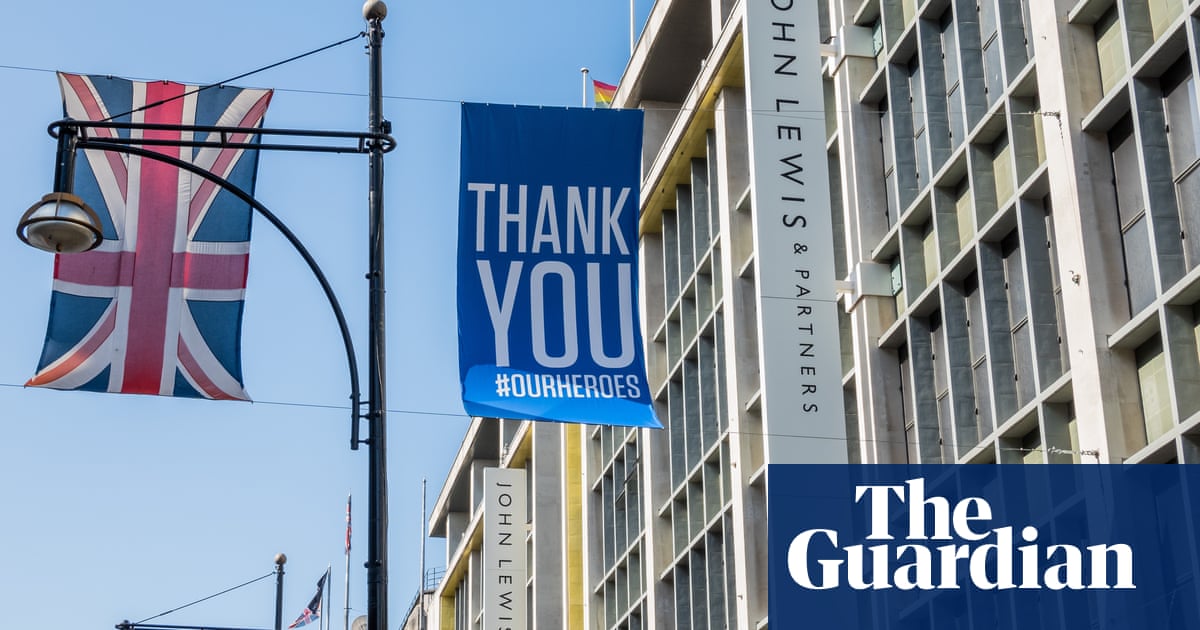
John Lewis and Waitrose staff will not get a bonus this year after the retail group fell into the red, posting a worse than expected £230m full-year loss.
Sharon White, the chairman of the John Lewis Partnership, warned of job losses to come as she said “inflation hit us like a hurricane”, with higher freight, energy, labour and fuel bills adding £180m in costs. These helped push the group into the second ever full-year loss in its history.
White said some Waitrose shoppers had turned to the discounters, as the business “saw a post-Covid shift in grocery from online to shops” and belts tightened at a time of record-low consumer confidence.
She said the outlook remained uncertain because inflation, though diminishing, was still around and consumer confidence, though rising, remained subdued.
The staff-owned group said it made an underlying pre-tax loss of £78m in the year to 28 January, compared with analysts’ expectations of £50m and an £181m profit a year before. Write-downs of the value of Waitrose stores after poor trading took the overall loss much higher.
White apologised to staff, who are known as partners because they jointly own the business, for not paying an annual bonus for only the second time since 1953 after “a tough set of results”.
However, she defended her plan to cut costs and invest in new areas such as financial services and building homes to rent above stores. “I couldn’t be more confident that we could convert more of our £12bn-plus of sales into sustainable profit. We have a strong balance sheet and a prudent strategy to support long-term growth,” White said.
She said there was a “clear path to profit” although the group did not pledge to return to the black this year, potentially spelling another lost bonus for workers in 2024.
Sales for the group fell 2% to £12.25bn as steady sales at its department store chain only partly offset a 3% fall in sales at Waitrose. White said Waitrose had attracted 800,000 more customers but each had spent less.
White said the group was responding to its difficulties by tripling its target for cost savings to £900m by January 2026.
“The mantra for the year is cost out, margins up and customer focus,” she said, adding: “As we need to become more efficient and productive, that will have an impact on our number of partners”.
The figures were published a day after the parent group of John Lewis and Waitrose appointed the former Hovis boss Nish Kankiwala as its first group chief executive as it struggles to turn around the business amid rising costs.
The boss of its department store chain, Pippa Wicks, left unexpectedly last month to be replaced by the retail director, Naomi Simcock, while the boss of Waitrose, James Bailey, is under pressure after sales slid at the supermarket chain amid the cost of living crisis.
Sales at the department stores rose 0.2% to £4.9bn, helped by strong fashion and beauty offsetting a fall in sales of home technology and larger furniture. Operating profits slumped 11% to £676m as costs rose. Sales in stores were up by a fifth but there was a 5% slide online as shoppers returned to high streets after the pandemic restrictions.
John Lewis has put plans for smaller stores on hold in this year, but will update existing department stores to appeal more to families with, for example, more play areas, parent rooms and schoolwear from its cut-price range.
At Waitrose, sales fell 3% to £7.3b, with the number of items sold down 10% amid rising grocery inflation across the market. Online sales decreased to 14% of the total, down from 17% at the height of the pandemic, with store sales steady. Operating profit fell 12% to £894m. White said the retailer had partly suffered from availability problems caused by a warehouse fire and difficulties with product supply.
The supermarket is planning to open 50 new convenience store outlets via its partnerships with Dobbies garden centres and Shell garages but has no plans for more standalone Little Waitrose stores this year.
Susannah Streeter, head of money and markets at the broker Hargreaves Lansdown, said: “Although the high street has shown pockets of resilience among retailers offering value-for-money essentials, the nice-to-have items which are John Lewis’ bread and butter have been dropping out of shopping baskets fast. Waitrose, in particular, has been sideswiped by the trend, with essentials rather than treats a priority, shoppers have been putting less in their trolleys and decamping to cheaper stores.”












